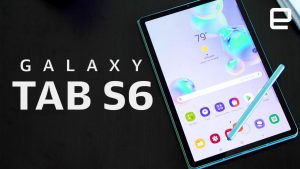The two developers of an indie game called Ooblets have been subjected to “tens of thousands if not hundreds of thousands” of abusive messages following their decision to put their game on the Epic Games Store. It’s a worrying yet entirely unsurprising example of the toxic elements of the gaming community and their strangely unlimited hatred for Epic.
Ooblets is a game by a husband and wife team that looks like a sort of farming/dancing/collecting simulator with a fun, cute style. They’ve been developing it for a couple of years now with the help of Patreon supporters, and are getting closer to release.
In the process of lining up where and how to sell the game, the two entered into a contract with the Epic Games Store, which in exchange for near-term exclusivity would guarantee the developers the income they might have gotten if they’d decided to launch on multiple storefronts.
This practice adds some stability to what can be a very unpredictable sales environment, and as a side effect gave the two a fund upfront to finish development without having to rely on their Patreon supporters — whom they told about the new deal and consulted about what should happen next.
To be clear, the game will still be able to be bought and played by pretty much everyone on PC, just using a different storefront. Like if the chips you prefer started being sold at 7-Eleven instead of AM/PM. Except you can go to either one just by clicking your mouse.
But when they announced the news to the broader internet, it drew down on Ben and Rebecca Cordingley the ire of the easily provoked gaming world, specifically those who believe that Epic’s purchase of exclusives for its nascent gaming storefront is an affront to all that is sane and good in this world.
Immediately the two were inundated with messages “on every conceivable platform” telling them to die, swallow bleach, get raped, and both accusing Ben of anti-Semitism and mocking his being Jewish. Some, he said, went so far as to doctor video to make it seem like he had posted something then deleted it.
Horrified and taken aback by this massively disproportionate response to two people deciding to make a deal that should benefit their game and not affect their supporters (their patrons on Patreon were never promised the game, let alone on a specific platform), Ben wrote a post with his thoughts on the matter. You can read it here, along with some rather disturbing excerpts of the attacks on him and his wife.
These attacks are likely ongoing — in fact, the new post has probably just stoked the fire, and the two can look forward to a few more weeks of being told to kill themselves or that someone is going to find them and assault them.
The backlash against Epic over the last year has been perplexing to watch. The new storefront was created in the wake of Fortnite’s success to act as a dark horse challenger to the reigning champ of the PC gaming world, Valve’s Steam. Releasing on Steam has been a foregone conclusion for most PC games for years, but recently that practice has been challenged as companies like Epic and Ubisoft created their own launchers and game stores.
Flush with Fortnite cash, Epic has relied on two things to grow its storefront, which began (and remains) rather lackluster compared to its more mature and popular competitors. First, it has simply picked a number of games each month to give away for free, no strings attached — and not shovelware either, but actually great games that people want. Second, they’ve arranged for upcoming games to release exclusively on their platform.
Paid exclusivity is of course by no means new, especially not in the gaming community, where exclusivity among platforms has been the rule since the ’80s, when it was Mario versus Sonic, to today, when it’s Halo versus Destiny or a hundred others. Sony, Microsoft, Nintendo and many others pay huge amounts to lock in developers for years, sometimes buying them outright so their games will be released exclusively on a certain platform. Epic seems to be joining a fairly large club.
Steam has many features Epic doesn’t, it is true. The community of recommendations, mods, forums and gamified purchasing on Steam is unmatched anywhere else. But for the purpose of buying and launching a game, the two are pretty evenly matched. It’s understandable that people might be upset when a game they are looking forward to disappears from their wishlist on Steam, or that they have to download another app in order to launch some games. But this inconvenience is, let’s be honest, minimal.
It’s sad reading not just the initial outrage at the pair’s decision — which, as they explained, is helpful for them as developers and lets them finish the game with less financial uncertainty — but at the justification that many have put forward that by joking about how angry people get about the Epic thing in the original post, Ben was inviting the abuse he received. These “they should have known” or “they were asking for it” people seem to want the developer’s perceived tone to have equal importance as the thousands of death threats they received subsequently.
From Ben’s post:
I’d challenge anyone to be on the receiving end of this for a few minutes/hours/days to not come to the conclusion that a huge segment of the broader gaming community is toxic.
There’s a strange relationship a segment of the gaming community has with game developers. I think their extreme passion for games has made them perceive the people who provide those games as some sort of mystical “other”, an outgroup that’s held to a whole set of weird expectations. These folks believe they hold the magic power of the wallet over developers who should cower before them and capitulate to any of their demands. You can see this evidenced by the massive number of angry people threatening to pirate our game in retaliation to any perceived slight.
It’s hard to see the effects or scope of what a massive mob of online harassment is doing to someone until you’re on the receiving end of it. It’s also really hard to realize when you’re unwittingly part of a harassment group because you’ve been so convinced by the mob mentality that your anger and target are justified.
Ben and Rebecca are far from the first to be the target of this type of mob, and let’s not forget that 8chan got its start as a refuge for “gamergate” diehards who had been ejected from other platforms. The original toxic gamer outrage factory is now known for being an incubator for white nationalist terrorists. Threats from the collective fragile internet ego are manifesting in bullets and taking lives with frightening frequency.
If you’d like to support the game and developer, which I already intended to do before this unseemly furore, you can follow the developers and see the latest over at Ooblets.com.


